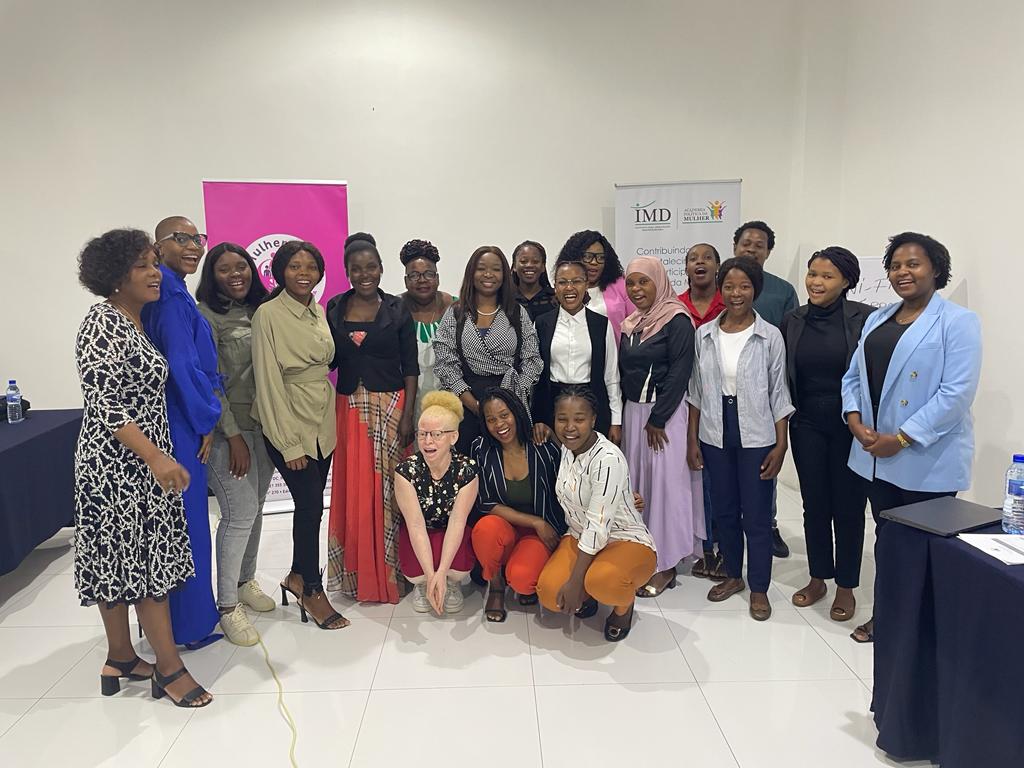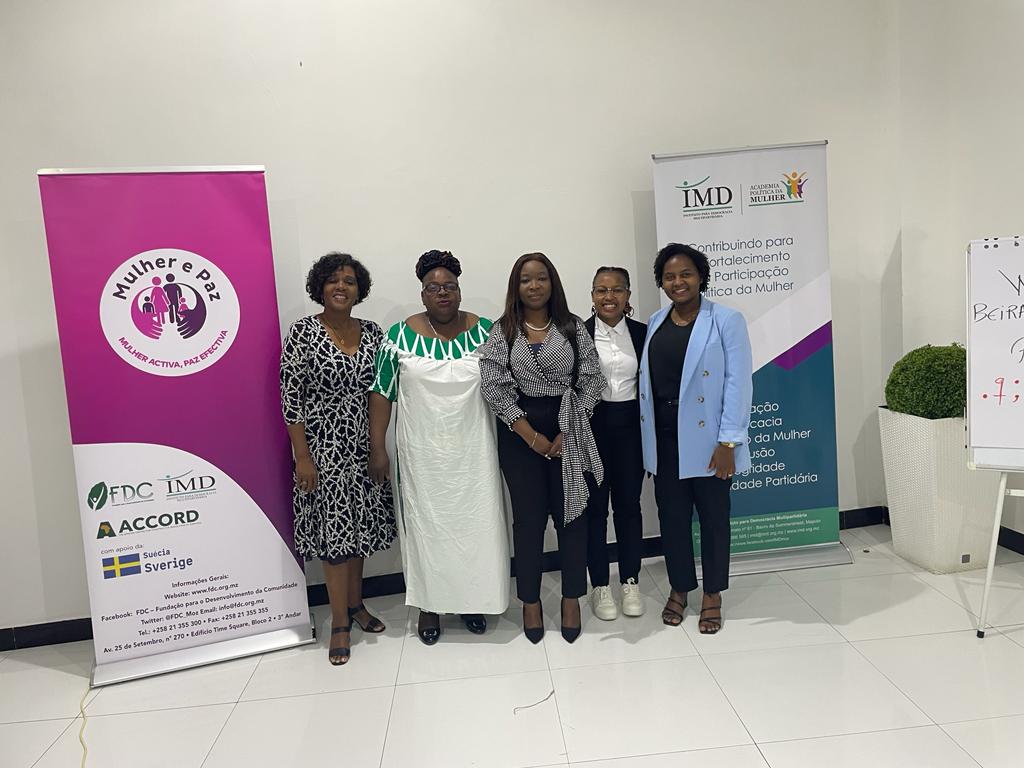 A total of 14 trainers, 13 women and 1 man, from the 7 provinces in the central and northern regions of the country, recently benefited from training as provincial trainers in conflict prevention and women’s participation in peace consolidation and reconciliation.
A total of 14 trainers, 13 women and 1 man, from the 7 provinces in the central and northern regions of the country, recently benefited from training as provincial trainers in conflict prevention and women’s participation in peace consolidation and reconciliation.
The two-day training took place between September 12 and 13 in the city of Beira, Sofala province, with the aim of equipping provincial trainers with tools, knowledge, skills, and conflict management and prevention mechanisms for subsequent provincial replication to women in the Women and Peace Movement. The goal is to ensure that women in the movement have more knowledge to increase their involvement in dialogue and advocacy for the construction of peace and reconciliation, leading to greater social cohesion in Mozambique.
Lorena Mazive, Programs Coordinator at the Institute for Multiparty Democracy (IMD), challenged the trained individuals to replicate the acquired knowledge in each module of the training package in their provinces with the necessary quality and impartiality.
As a result, the trained individuals will be responsible for capacitating and guiding women in their communities, at a rate of 43 per province, with the ultimate aim of reaching 300 women. The training covers topics such as conflict prevention, peace promotion, gender equity, citizenship, and reconciliation.
“This initiative is part of the Women and Peace Program, which aims to increase women’s influence in the peace-building process, which often has a ‘male face.’ We want to be different, give visibility to women to influence the participation of others in the construction of this precious asset,” stated the coordinator. She urged the participants to replicate the program’s objectives for sustainability and to effectively promote the expected social change and increased community involvement in conflict prevention and peace promotion.
“In light of the political-electoral context we are in, you may be mistaken for engaging in partisan political activities. It is essential to clarify that this action is non-partisan,” noted Lorena Mazive. Furthermore, she emphasized that each participant has added responsibilities to contribute to their community by involving women in conflict prevention through knowledge transmission.
Lorena Mazive also argued that when discussing gender justice for sustainable peace, the debate becomes highly political, often influenced by somewhat conservative political interests. She stressed the urgent need for women to be included from the beginning of the peace discussion, not midway or at the end. Currently, progress is measured by counting the number of women involved in formal peace maintenance and establishment processes. However, expanding the network reveals women involved in peace processes in various ways that are not considered.
 Rosalita Macate, Focal Point of the Women and Peace Movement in Sofala province, explained that the meeting was of great importance, especially in the final moments of the democratic exercise in the country. Macate highlighted the goal of expanding the space for women’s influence in promoting social peace and the well-being of communities.
Rosalita Macate, Focal Point of the Women and Peace Movement in Sofala province, explained that the meeting was of great importance, especially in the final moments of the democratic exercise in the country. Macate highlighted the goal of expanding the space for women’s influence in promoting social peace and the well-being of communities.
She emphasized that women’s participation is crucial in building a healthy and socially harmonious society. “It is another opportunity to improve women’s performance in peacebuilding and social cohesion, that is, preventing the outbreak of conflicts,” she said.
Macate added that the city of Beira, in particular, has been a stage for electoral disputes, making it important to disseminate messages of peacebuilding and conflict prevention. “We have to equip women with conflict prevention tools to know how to prevent and manage conflicts,” she concluded.
Loide Macaringue, the facilitator of the training, stated that it is necessary for women to migrate from informal spaces of conflict resolution, from the position of victims to formal spaces for problem-solving. “May the acquired knowledge be replicated in their origins to empower women more and more. Training should not end in the room. I hope they use the concepts taught to train others,” she said.
It is worth noting that 14 trainees, 2 from each province, participated in the training from the provinces of Cabo Delgado, Nampula, Niassa, Zambézia, Tete, Manica, Zambézia, and Sofala, where the program is being implemented. The training is part of the Women and Peace program funded by the Embassy of Sweden and implemented by the Institute for Multiparty Democracy (IMD) in partnership with the Community Development Foundation (FDC) and the African Centre for Constructive Resolution of Disputes (ACCORD).












